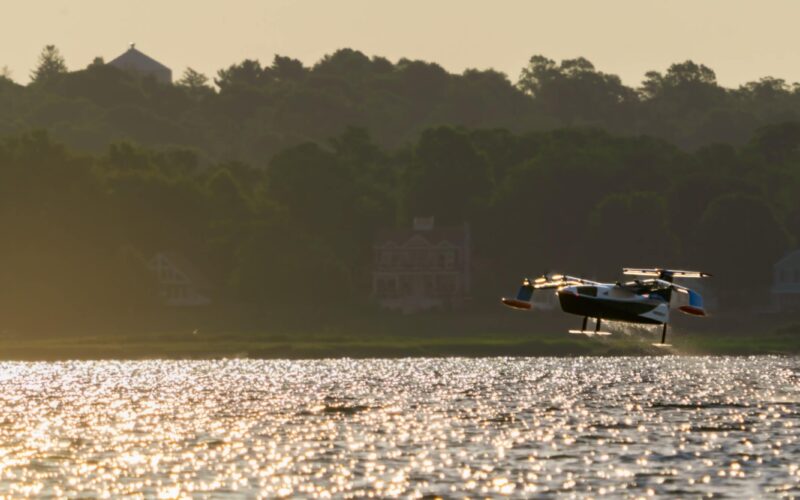Is it a boat? Is it a plane? The new generation of ground effect vehicles that REGENT is developing, and which this Boston-based startup calls “seagliders”, combine features of both sea craft and aircraft.
The seagliders make use of a physical principle called “ground effect”. Winged vehicles moving very close to the surface of water (but without touching it) benefit from reduced drag, which allows them to move at very high speeds.
This is an idea that was explored extensively by the Soviet Union for military aims. Even though some really large ground effect vehicles were built in the 1970s, the concept never really took hold. “Ekranoplans”, as the Soviets called them, suffered from stability and reliability issues, particularly in choppy waters.
However, REGENT claims to have solved some of these problems with a new design approach and state-of-the-art technology. To do that, it has combined some of the elements of ground-effect vehicles with those of hydrofoils (another type of fast vessel whose hull rests on fins).
These new generation seagliders should be able to reach 180 miles per hour and connect coastal communities within a radius of 180 miles. What’s more, they would do so relying on electric motors only (the founders of REGENT come from the eVTOL industry).
This is a rather bold proposition that, nevertheless, has attracted the attention of both maritime operators, such as Brittany Ferries and SplitExpress, and airlines, such as Hawaiian Airlines and now Japan Airlines.
The venture arm of the Japanese carrier will join a roster of prominent investors which include Silicon-Valley startup incubator Y-Combinator and tech billionaires Mark Cuban and Peter Thiel.
The partnership with Japan Airlines is not just financial, since the two companies are going to work together in order to evaluate the potential of REGENT’s sea-skimming transportation technology to open up new coastal routes in Japan as well as in other countries.
In conversation with AeroTime, REGENT’s founder Billy Thalheimer stated that the startup has already racked up more than 400 orders or letters of intent and is on track to start deliveries by the middle of the decade.

